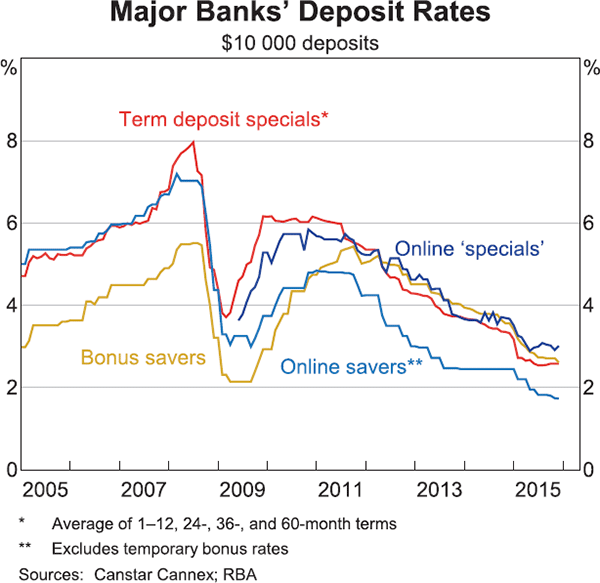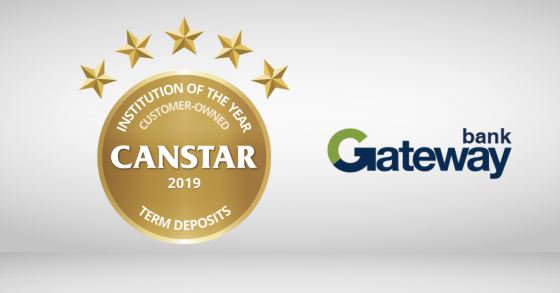Canstar Term Deposits

Compare term deposits from over 14 providers with our free comparison service. Find the best interest rates and features for your next term deposit. Lock away your savings for a term of 3 months up to 3 years and receive a generous interest rate. For term deposit of $1m and over, rates are by negotiation and subject to acceptance. Term deposit with interest paid fortnightly or monthly is optionally available for terms of 3 months or longer at a rate of 0.10% pa below the published rate.
What is a term deposit and how does it work?
Canstar Term Deposit Calculator
A term deposit is a deposit held at a financial institution, bank, building society or credit union for a fixed amount of time, known as a term. When the money is deposited, the customer understands that the money is there for the pre-determined period which usually ranges from 1 month to 5 years. Typically, the money can only be withdrawn at the end of the period, however it can be accessed earlier but penalties apply. This is usually partial or full forfeiture of the interest rate the term deposit would have earned.
Term deposits are popular with investors who prefer the safety of this type of ‘money minder’, as opposed to the fluctuations of, say, the share market. Many investors also use term deposits as a part of their investment mix.
How do I apply for a term deposit?
To apply for a term deposit you follow much the same process as you would when you apply for a normal bank account. It’s even easier if you apply for a New Zealand term deposit at the same institution you already bank with. Once you have earmarked the amount of money you want to invest and the interest rate you are locking in, it is simply a matter of filling out a form.

Fixed Term Deposits
What if I want to break my term deposit?
If you want to break your term deposit, you need to first understand you could be heading for an uphill battle with your bank. The Banking Ombudsman of New Zealand points out that financial service providers are not legally required to allow customers to access their funds before the fixed term. Some providers offer a “cooling off” period, when you first open a term deposit account – a period of time where you can cancel your tern deposit and have your principal repaid – but without interest. If you can demonstrate you are in hardship, you might be able to withdraw your funds without giving notice.
Pros and cons of term deposits include:
| PROS | CONS |
|---|---|
| You receive a specified interest rate at the end of the term, regardless of whether rates drop in the meantime | Online savings accounts sometimes offer higher interest rates. |
| Savings are locked away, preventing the temptation to spend it all. | Your money is not available for use at any time. You pay a penalty if you need to withdraw your money early. |
| Low-risk investment – less volatility in the term deposit market. | The real rate of return is not as good as it seems. To calculate your actual profit from a term deposit, subtract the current inflation rate from the interest rate paid. For example, if inflation was running at 1% and your term deposit was paying 3%; your “real” rate of return is 2% |
New Zealand term deposits – learn the market rates
Before you agree to open up a term deposit account, it pays to know the rates financial providers are offering, so you can see where your money will have the best chance at growing.

Read the Investment Statement
As with all financial products, it’s imperative you read the Investment Statement so you know exactly where you stand on a number of issues. For example, it’s important to find out whether the provider offers a cooling off period. Even if you have previously taken out a term deposit with the same bank, make sure you still read the document, as conditions can change and you don’t want to be caught out.
Pay particular attention to Maturity conditions, Prepayment penalties and, of course, any fees. Note that the overall return on investment will be affected by any fees you pay, whether at setup or at maturity.
If you think there is a chance you might need to break your term deposit early, then you might want to choose a shorter term, or to explore other options, such as a savings account.
Enjoy reading this article?
Sign up to receive more news like this straight to your inbox.
By subscribing you agree to the Canstar Privacy Policy